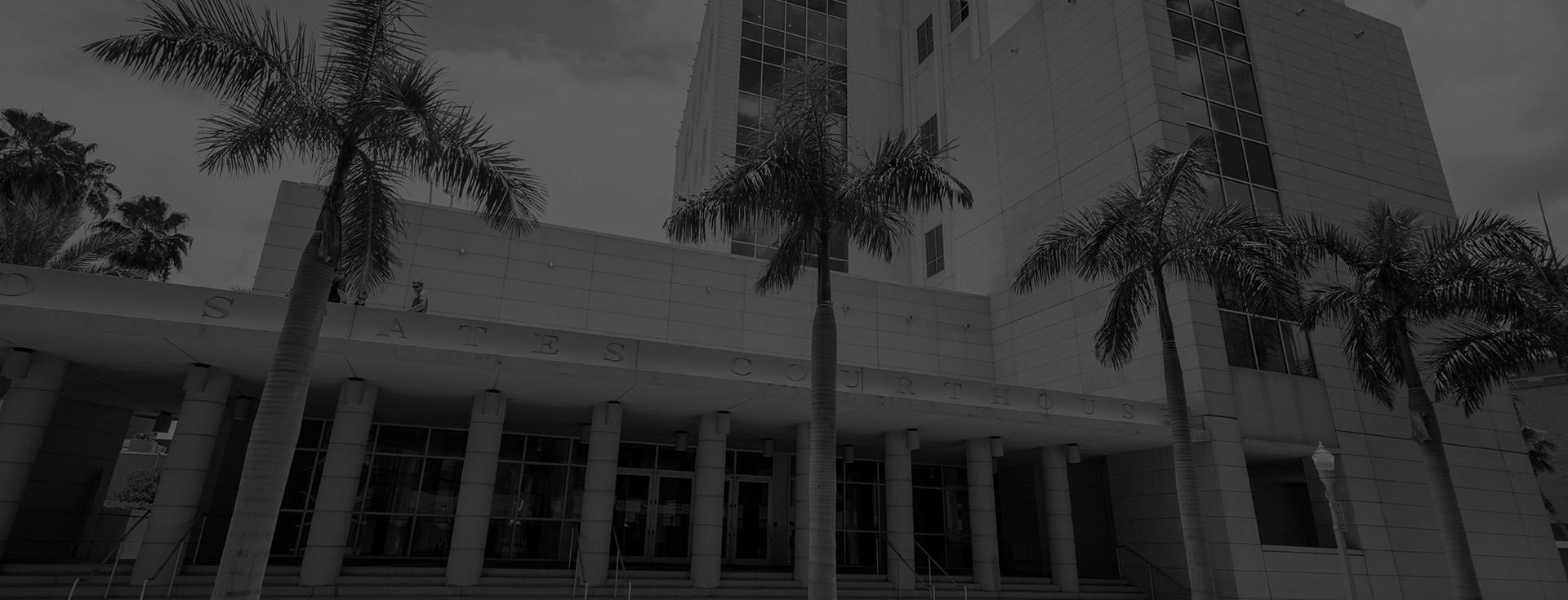
Your Case Deserves Immediate Attention - Call Hubbs Law Today
Miami Burglary Attorneys
Call Our Team for a Free Consultation
Burglary generally refers to situations where defendants are accused of breaking into cars or homes. In Florida, burglary is a serious problem.
Burglary is a serious criminal offense in Florida that can be charged between a third-degree felony and a first-degree felony, punishable by life in prison, depending on the facts and circumstances of the case. In addition, if you are not a United States citizen, a conviction for burglary can subject you to being placed in removal proceedings from the United States.
Contact Hubbs Law Firm at (305) 570-4802 to speak to a Miami burglary defense attorney about your case today.
You Need an Attorney for Burglary Crimes
Burglary is a serious crime that could potentially lead to a lengthy prison term. Having an experienced criminal defense attorney to fight for your rights in these kinds of cases is invaluable. Call attorney E.J Hubbs to learn more information about burglary and its lesser-included offenses.
E.J. Hubbs has offices in South Miami on Sunset Drive and an office in North Miami. Our firm takes burglary cases throughout Miami-Dade County, in cities like Coral Gables, South Miami, The Crossings, Pinecrest, Dadeland, Kendall, and Palmetto Bay, Florida.
Call (305) 570-4802 now to schedule an appointment to speak one-on-one with attorney E.J Hubbs.
Elements of Burglary
Burglary is generally defined in Florida as the entering of a structure or conveyance with the intent to commit a crime other than burglary or trespass.
Therefore, in order to prove the crime of burglary, the State is required to prove beyond a reasonable doubt the following:
- The defendant entered a structure or conveyance owned by or in the possession of the victim
- At the time of entering, the defendant had the intent to commit a crime other than burglary or trespass
- If the defendant alleges that he or she had permission to enter or that the structure or conveyance was open to the public, then the State must prove the defendant was not invited and the location was not open to the public
The State can also prove a burglary if the defendant had permission to enter a structure or conveyance. This is possible if the State can prove that the defendant had permission to enter the property and remained with the intent to commit a crime. Or, the State can prove that the defendant did not have permission to remain on the property and stayed out of an intent to commit a crime.
Penalties for Burglary
The maximum penalty for burglary depends on the charge involved. Here is a list of some of the possible burglary offenses below:
- Burglary of an Unoccupied Conveyance – Third-degree felony, maximum penalty of five years in prison and $5,000 fine
- Burglary of an Occupied Conveyance - Second-degree felony, maximum penalty of 15 years in prison and a $10,000 fine
- Burglary of an Unoccupied Dwelling – Second-degree felony, maximum penalty of 15 years in prison and a $10,000 fine
- Burglary of an Occupied Dwelling - Second-degree felony, maximum penalty of 15 years in prison and a $10,000 fine
- Burglary with Assault or Battery – First-degree PBL felony, maximum penalty of life in prison and a $10,000 fine
Firearm enhancements also apply to all of these charges. Under 10-20 life, if a defendant is in actual possession of a firearm during the course of the burglary he will be subject to a minimum mandatory sentence of 10 years. If a firearm is discharged during the course of the burglary, he will be subject to a minimum mandatory sentence of 20 years. If a firearm is discharged and causes death or great bodily harm during the course of the burglary, he will be subject to a minimum mandatory sentence of 25 years.
Defenses to Burglary
- Identification – Identification is always an issue in criminal cases. Identification means that a witness must identify you in court as the person that committed the crime, or the State must prove that you were the one that committed the crime through circumstantial evidence (fingerprints, DNA, etc.). Many burglary cases involve scenarios where there are no eyewitnesses or the witness cannot make an identification. In addition, forensic testing involving fingerprints or DNA evidence won’t necessarily prove you were the one that committed the burglary since the evidence cannot prove on what day and time you would be in the house or vehicle.
- Permission – Burglary generally requires the State to prove that you entered the structure or dwelling without permission. If you entered the dwelling or structure with permission, you may be found not guilty of burglary. Permission can be direct as when you are verbally allowed inside. Permission can also be implied as when you have previously been allowed in without asking or you have a key.
- Lack of Intent to Commit a Crime – Burglary requires the State to prove that you intended to commit a crime (other than burglary or trespass) within the structure. If your intent when you entered the property was anything other than committing a crime, you are not guilty of burglary.
- Lack of Evidence that the Structure is a Conveyance/Dwelling – A dwelling is defined as a “building of any kind, whether such building is temporary or permanent, mobile or immobile, which has a roof over it and is designed to be occupied by people lodging therein at night, together with the enclosed space of ground and outbuildings immediately surrounding it.” Not all dwellings meet this definition. Picture an abandoned home with a damaged roof, no furniture, that has not been occupied for years. You may be able to argue that the structure does not qualify as a dwelling.
Find an Attorney for Burglary Charges in Miami
If you were arrested for any type of burglary charge in Miami or Miami-Dade County, contact Hubbs Law Firm. Our experienced criminal defense attorneys can sit down with you and discuss your case and any defenses you may have under Florida law.
E.J. Hubbs is Board Certified in Criminal Trial Law by the Florida Bar, meaning he is one of a limited number of attorneys in Miami, FL who can refer to themselves as certified in criminal law. In fact, less than 1% of attorneys are Board Certified in Criminal Trial Law in the state of Florida.
Our legal team aggressively defends every criminal charge, including burglary charges. In almost every case, we will pursue all discovery, conduct depositions, file motions when applicable, and zealously prepare the case for trial.
Call Hubbs Law Firm today at to set up your free consultation.
Additional Resources
- Miami-Dade County Case Search - Find information on your case, including court location, the assigned judge, the assigned prosecutor, case history, and upcoming court dates.
- Florida Department of Corrections Search - Find information on an individual’s prior felony criminal record in the State of Florida, prison location, and expected release date.
- Miami-Dade County State Attorney’s Office - Find information on the State Attorney’s Office, which oversees prosecuting all state criminal charges in Miami, FL.
- Miami-Dade Police Department - Find information on the Miami-Dade Police Department, which oversees investigating all state criminal charges in Dade County, FL.

Attorneys E.J. & Erika Hubbs
As professional Miami criminal defense attorneys, we take every case personally give every client the deliberate care it deserves. Our clients become part of our family and we fight relentlessly for their rights. Read more about us to find out how we can help you.

-
"On the personal note she treats you like family and I recommend her to anyone that needs help."Gabriel M.
-
"I highly recommend Hubbs Law, P.A. When I found out my license was suspended for a ticket I did not know I had, I was scared and did not know where to go from there."Christina K.
-
"The moment I spoke to Hubbs (the attorney), I was hopeful. He cared to listen, was honest, gave me his humble opinion, listed possible outcomes, and most importantly, he told me to come in because he thought there was a fighting chance."Carlos G.














